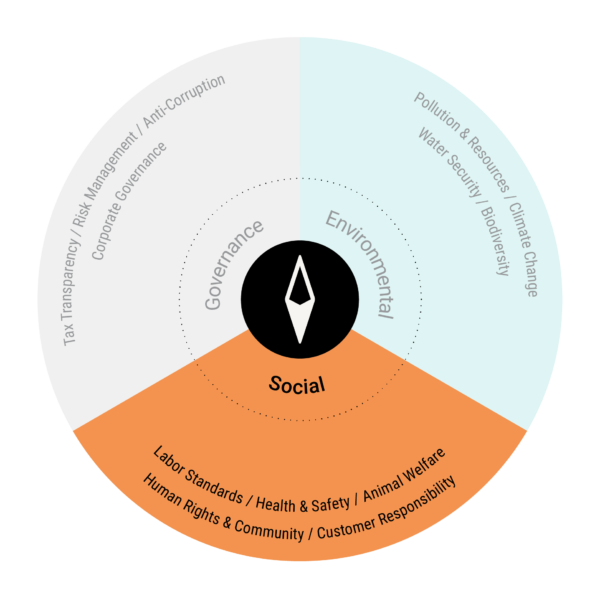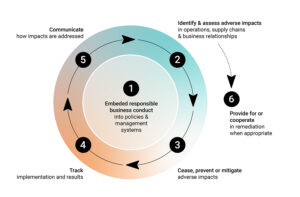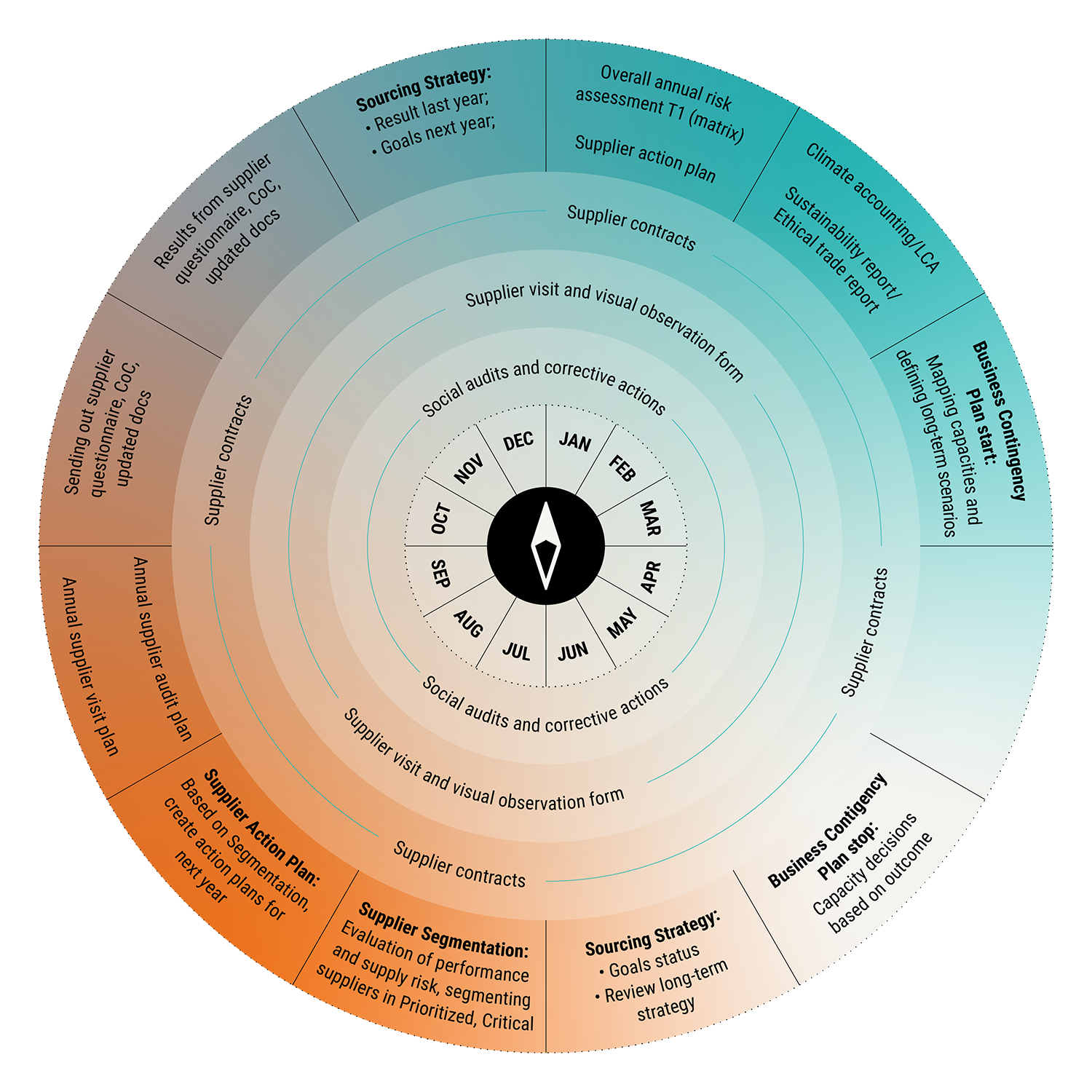Home » Responsibility » Social
Social is the S in the Environmental Social Governance (ESG) model and for Brav it refers to the UN Sustainability Development Goal #8 Decent Work and Economic Growth: Promote sustained, inclusive and sustainable economic growth, full and productive employment and decent work for all. Brav is committed to creating a workplace of diversity, inclusion and mutual respect. Brav respects fundamental human rights in all of our business operations and comply with all applicable laws and regulations.

Through our membership in Ethical Trade Norway, Brav has since 2005 been committed to carrying out and reporting due diligence in our supply chain following UN Guiding Principles on Business and Human Rights and the OECD model for Due Diligence for Responsible Business Conduct for mapping, preventing, limiting and documenting how we deal with existing and potential negative consequences of our activities. How we manage risk in our operations to reduce negative impact and comply with laws and regulations. While we create financially sustainable growth.

We monitor and evaluate our suppliers integrating ESG as a part of the strategic fit, meaning that the suppliers should follow our goals and work towards improved ESG parameters. As illustrated here in our annual wheel, the monitoring and evaluation of suppliers is an ongoing process. Dealing with a global supply chain there are always potential risks of negative findings. To ensure that our business activities do not cause harm to people or the planet, we have measures in place to monitor, track, cease, prevent, or mitigate ESG risks.

Please feel free to take a look at our responsibility reports in which you find more detailed information about our due diligence work.
The Employee Code of Conduct describes what is expected of each of us and mirrors our environmental, social and governing responsibility. It defines our commitments and requirements for ethical conduct in Brav and applies to all Employees and Board members in Brav.
The Brav Supplier Code of Conduct describes what is expected of our Suppliers and mirrors our environmental, social and governing responsibility.
It defines our commitments and requirements for ethical conduct in Brav and applies to all Suppliers to Brav.
All suppliers, service providers and business partners must sign and adhere to our Code of Conduct before entering into contractual agreements.
Our Brav Supplier Code of Conduct is also covering the complete policy for responsible business conduct.
Download:
